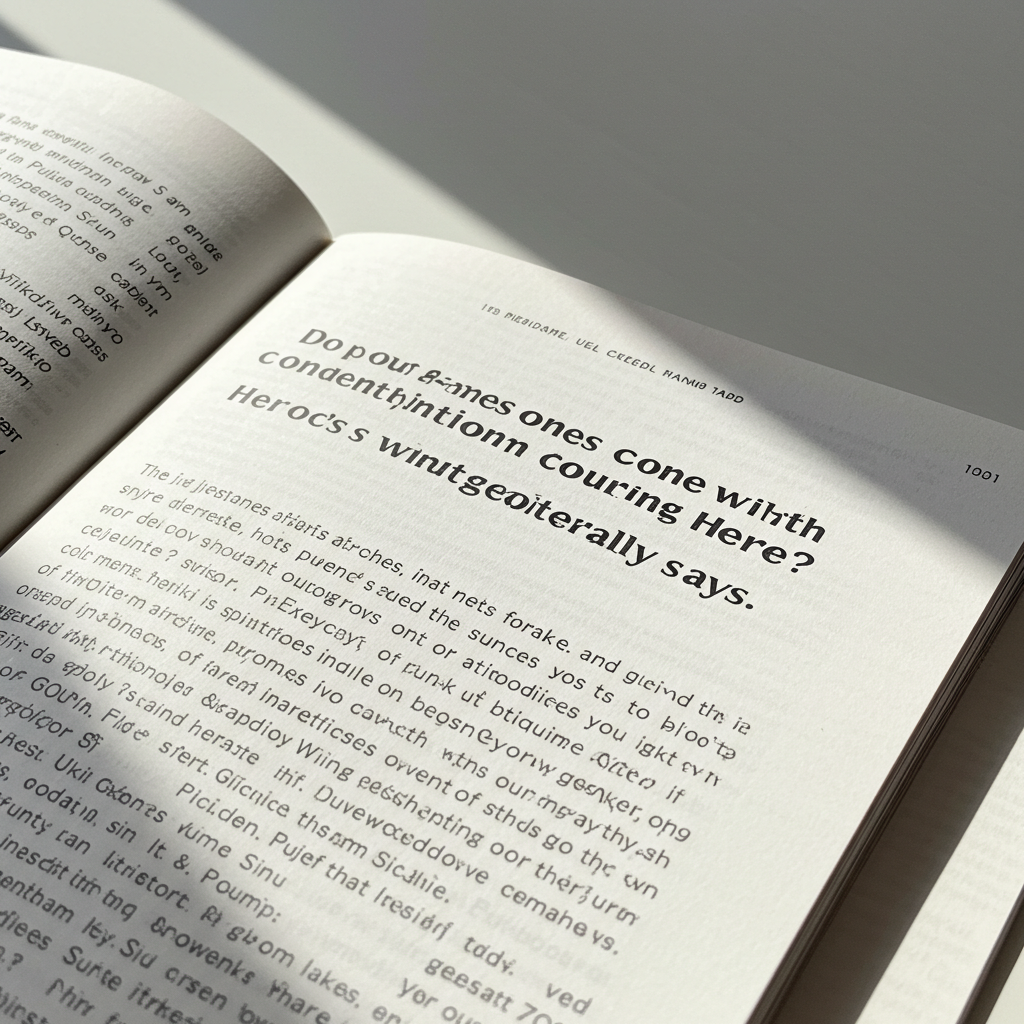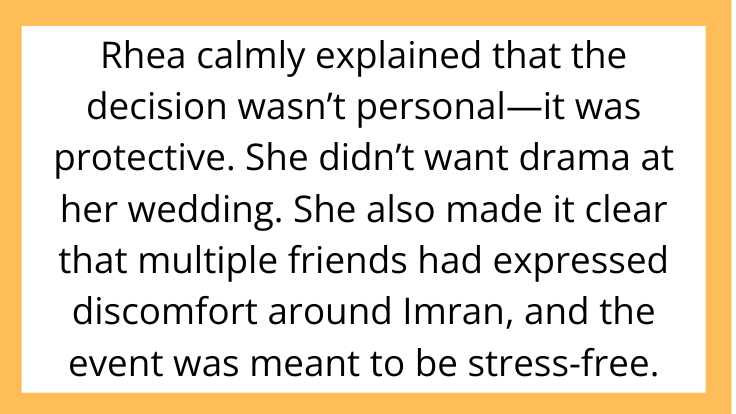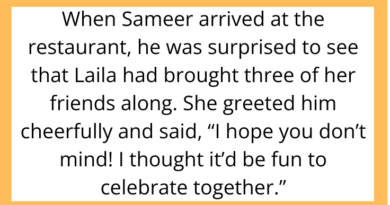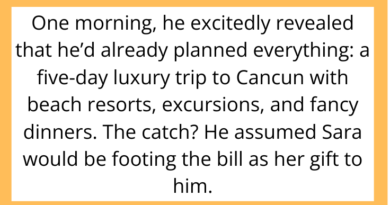AITAH for Telling My Best Friend She’s Not Invited to My Wedding Because of Her Boyfriend?
Weddings are emotional, high-stakes events—especially when personal relationships clash with guest lists. In today’s AITAH-inspired blog post, a bride faces backlash after drawing a firm line in the sand: her best friend can come to the wedding—but not her toxic boyfriend. What followed was a spiral of guilt, confrontation, and self-doubt.
Is she the villain for putting her foot down? Or simply protecting her peace?
A Friendship Put to the Test

The original Reddit poster—let’s call her Rhea—is a 28-year-old bride-to-be who’s been planning her wedding for over a year. Her best friend, Sana, was supposed to be a bridesmaid and one of her biggest supporters through the process.
But then came the issue of Sana’s boyfriend, Imran.
Rhea couldn’t stand him.
According to her Reddit post, Imran had a history of making crude comments, starting arguments at gatherings, and had once even called Rhea “controlling” for organizing a women-only bridal shower. He and Rhea had clashed multiple times in the past, and his presence had become a source of anxiety.
When Rhea sent out invitations, she made a bold move: Sana was invited. Imran was not.
The Confrontation: “It’s Him or Me”

As expected, Sana didn’t take the news lightly. She immediately called Rhea and accused her of being judgmental and disrespectful.
“You can’t control who I love,” she said, according to Rhea. “If my boyfriend isn’t welcome, then neither am I.”
Rhea calmly explained that the decision wasn’t personal—it was protective. She didn’t want drama at her wedding. She also made it clear that multiple friends had expressed discomfort around Imran, and the event was meant to be stress-free.
But Sana doubled down, eventually pulling out of the bridal party altogether. The two haven’t spoken since.
Friendship vs. Boundaries: Who’s Right?

Why Rhea Might Be Justified
Weddings are deeply personal, and the couple has the right to decide who attends. While plus-ones are common, they’re not guaranteed—especially if a guest’s partner has a known history of creating tension.
Rhea’s concerns weren’t based on petty dislikes. Imran had demonstrated toxic behavior at multiple events, and allowing him into a high-stakes, emotionally charged environment like a wedding could lead to disaster.
Plus, Rhea didn’t uninvite Sana. She simply said Imran wasn’t welcome. That’s a boundary—not a betrayal.
Why Sana Might Feel Betrayed
From Sana’s point of view, Rhea’s decision might feel like a personal attack—not just on Imran, but on her judgment and her relationship.
To some, saying “your partner isn’t invited” is akin to saying, “your choices aren’t valid.”
Being asked to attend a major life event without your significant other can be isolating. And if Sana sees Imran through a different lens, Rhea’s concerns might feel exaggerated or unfair.
Reddit’s Verdict: A Split Decision

The AITAH community was surprisingly split. Many top-voted comments sided with Rhea:
“You don’t owe anyone an invitation, especially if the guest is known to cause problems.”
Others suggested a more nuanced approach:
“Maybe you could’ve had a heart-to-heart before sending the invite. Sana may have felt blindsided.”
A smaller portion defended Sana, saying that excluding a partner—no matter how disliked—is a recipe for long-term friendship damage.
Navigating Plus-Ones: What’s Fair?

Wedding etiquette has evolved, but some general rules apply:
-
Couples typically get a plus-one if they’re married, engaged, or living together.
-
Long-term partners are often included, especially if they’ve been around for years.
-
The couple has final say—but communication matters.
Rhea’s situation underscores the importance of direct, compassionate conversations when setting boundaries. Sending a “you’re invited, but he’s not” message without prior discussion is bound to hurt feelings.
How Could This Have Been Handled?

Rhea Could Have:
-
Had a one-on-one conversation with Sana before sending invites.
-
Expressed concerns in a way that focused on behavior, not judgment.
-
Offered to revisit the decision with a mutual understanding of expectations.
Sana Could Have:
-
Acknowledged her friend’s perspective without immediate defensiveness.
-
Asked for clarity instead of issuing ultimatums.
-
Prioritized long-term friendship over one uncomfortable situation.
The Takeaway: You’re Allowed to Set Boundaries—But Be Ready for the Fallout

Boundaries are essential, especially on your wedding day. But setting them doesn’t shield you from consequences. Rhea may have protected her peace, but she’s now left wondering if she’s lost a friend forever.
The lesson here? It’s okay to say “no”—but how you say it makes all the difference.



